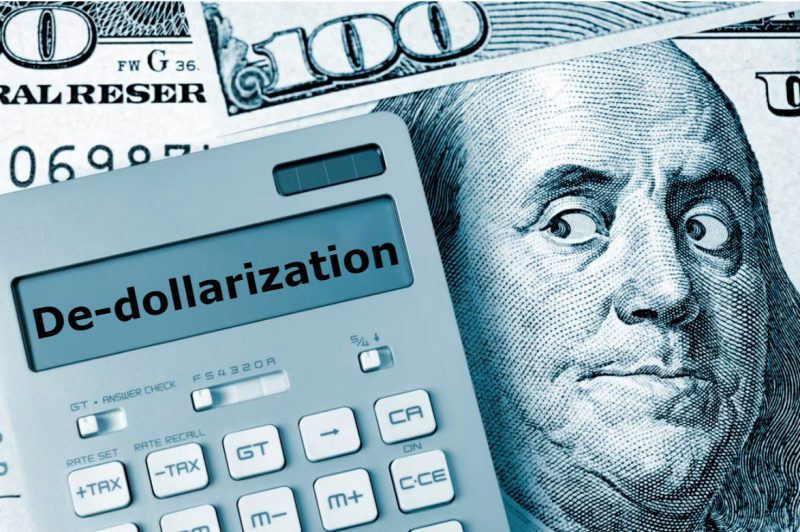International de-dollarization initiatives have catalyzed significant changes across major financial markets. Various emerging economies actively seek innovative solutions through alternative currencies, including a potential gold-backed system, to reduce U.S. dollar dependence. Strategic developments in the global economy signal remarkable shifts in international trade dynamics, with numerous BRICS nations spearheading new financial frameworks through gold-backed currency options and proposed monetary alternatives.
Also Read: US Dollar Tariff Impact: Trump’s Tariff Threats Spark Major Forex Volatility
How a Gold-Backed Currency Could Impact De-dollarization and the Global Economy


The BRICS Currency Initiative
Some powerful economic transformations have revolutionized the BRICS alliance, which now encompasses Brazil, Russia, India, China, South Africa, and dynamic new additions like the UAE and Iran. Key financial strategists are examining innovative approaches to shared currency implementation.
Gary Smith from Columbia Threadneedle said:
“A big-bang move to a shared currency for the BRICS nations is not practicable. A fixed but adjustable exchange rate regime might be a more viable route to a new currency.”
Gold-Backed Solutions and De-dollarization Prospects
Prominent gold producers within BRICS have engineered groundbreaking approaches to establishing a gold-backed currency. Market dynamics point toward extensive opportunities for alternative currencies in global trade.
Smith also had this to say:
“A gold-backed currency might appeal to major gold producers like China, Russia and South Africa. If a gold-backed currency replaced domestic currencies, then the BRICS nations would find themselves on a version of a gold standard.”
Also Read: Trump Proposes ‘D.O.G.E. Dividend’ Americans Might Get 20% Payout
China’s Growing Influence in the Global Economy
Significant financial developments have positioned the Chinese renminbi as a frontrunner among alternative currencies. Strategic partnerships showcase China’s expanding role in reshaping international trade relationships.
Gary Smith said:
“The BRICS nation currency that has made most progress in terms of increased usage in international transactions is the Chinese renminbi. As China is the largest trading partner for 120 other nations it is best placed to become the de facto BRICS currency.”
Implementation Challenges for De-dollarization
Critical market forces shape the trajectory of current de-dollarization efforts. Complex economic relationships require careful consideration of gold-backed currency implementation, while daily market fluctuations present unique challenges for the global economy.
Smith also said:
“Lula’s suggestion for inter-BRICS trade currency redenomination out of the dollar would require similar adjustments. The weights of each currency will need to constantly be adjusted to reflect global currency movements (often versus the dollar) and prevent arbitrage.”
Also Read: Ripple: XRP Eyes $2.83 & $3.10, Targets Bullish Formation: Will It Claim It?
Future Outlook for Alternative Currencies
Forward-looking strategies continue to reshape the de-dollarization landscape. Market experts anticipate substantial developments in BRICS currency integration, while gold-backed solutions gain increasing attention from global financial authorities.
Smith finished by saying:
“Although the desire to move away from the weaponized dollar is real and growing, the switch will be tough even for trade flows that occur within the BRICS group. The power of incumbency is strong. At the margin there will be a bigger role for the renminbi and for gold. The asset management industry is unlikely to need to provide BRICS currency-linked products for several decades, if at all.”





